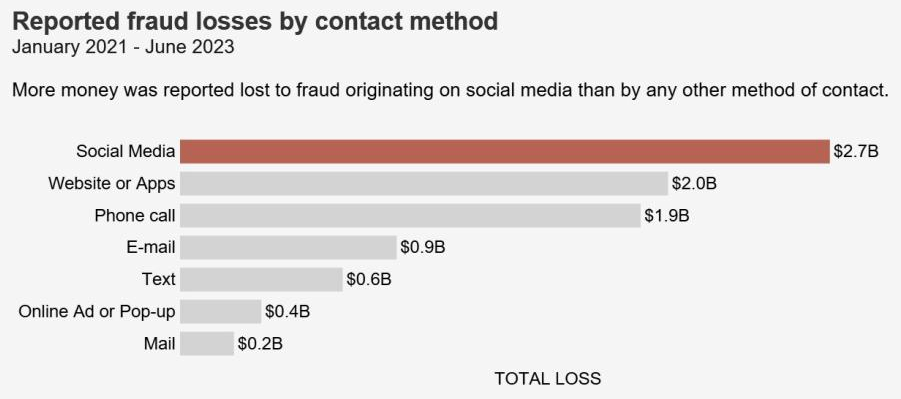
Recently, the U.S. Federal Trade Commission (FTC) disclosed investigative findings, revealing that since 2021, Americans have suffered losses amounting to a staggering $2.7 billion due to social media scams.
Emma Fletcher, the FTC’s lead data researcher, noted that given the vast majority of deceptive activities go unreported, the actual figures might be exponentially higher. Research suggests that a mere 4.8% of scam victims have lodged complaints with governmental entities.

According to the unveiled survey, in the first half of 2023, the predominant fraudulent activities reported on social media platforms pertained to online shopping, constituting 44% of scams related to online transactions. Facebook and Instagram emerged as platforms with the highest frequency of such activities.
While online shopping scams were the most frequently reported, those exploiting social media for counterfeit investment schemes caused the most financial harm, with over half of the total losses channeled to such swindlers.
Furthermore, romance scams ranked as the second most financially damaging type of social media fraud. Predominantly initiated via platforms like Facebook, Instagram, or Snapchat, these scammers often send friend requests to unsuspecting individuals and, after gaining their trust, perpetrate their scams.
Regarding the age demographics of the victims, a significant majority were young individuals below 30 years of age. Specifically, those aged between 20 and 29 represented 38%, while the 18 to 19 age bracket comprised 47%, aligning with the generational variances in social media usage.
In light of these findings, the FTC earnestly advises American users to exercise utmost caution to shield themselves from social media fraud. It strongly encourages those at risk to limit their social media posts and contact information. If someone, even if they claim to be a close friend or relative, solicits funds via social media, it is prudent to verify their identity through direct phone contact.